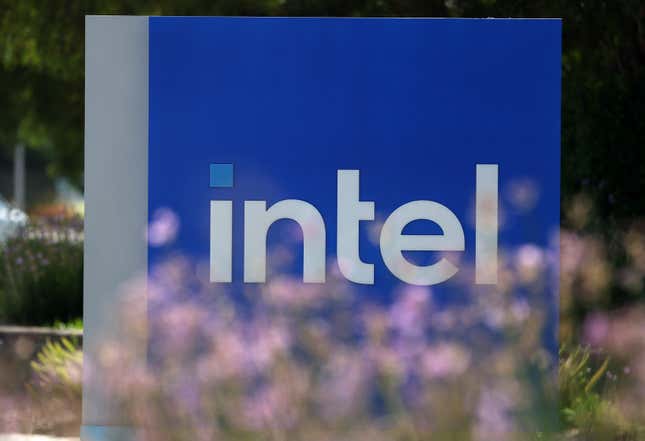
In This Story
Chip stocks dragged down the Nasdaq on Monday despite gains in the Dow Jones Industrial Average and S&P 500.
Shares of Intel (INTC-1.50%) were down by around 4.1% during midday trading, while Arm’s (SFTBY-0.28%) shares were down over 5%. Broadcom’s (AVGO-0.01%) stock was down by almost 3%, Qualcomm (QCOM+0.20%) was down by around 2.2%, and Micron (MU-0.64%) was down by around 3.5%.
Nvidia’s (NVDA-1.54%) shares were down by 1.6%, while Advanced Micro Devices’ (AMD+0.47%) stock faired slightly better, being down by around 1.3%.
Taiwan Semiconductor Manufacturing Company’s (TSM+0.63%) U.S.-listed shares joined other chipmakers in the decline and were down by around 4.2%. The fall follows news that the U.S. has reportedly ordered the company not to send advanced artificial intelligence chips to China anymore.
The world’s largest chipmaker was told to stop shipping advanced AI chips to Chinese customers starting Monday, Reuters reported, citing an unnamed person familiar with the matter. The U.S. Department of Commerce told the Taiwanese chipmaker in a letter that it is imposing export restrictions on advanced chips made with the 7-nanometer process or smaller, the person said.
Meanwhile, the Dow Jones Industrial Average and S&P 500 saw green Monday as stocks continued a post-election rally sparked by former President Donald Trump’s victory over Vice President Kamala Harris. Bitcoin also surged on the election victory, reaching a record $84,000.
With Trump’s return to the White House, the chip war between the U.S. and China could escalate. Under Trump’s first administration, Chinese tech giant Huawei was placed on the U.S. Entity List in 2019 after the government determined it had “been involved in activities contrary to the national security or foreign policy interests of the United States.”
Other Chinese semiconductor firms have been added to the list to restrict U.S. companies from sending equipment for advanced chip manufacturing.
TSMC has also reportedly told its Chinese customers it is no longer manufacturing AI chips with the advanced 7-nanometer process or beyond starting Monday, the Financial Times reported, citing unnamed people familiar with the matter. The chipmaker reportedly made the decision to cut off Chinese firms to improve internal controls and in anticipation of updated U.S. export controls on chips sold to China by the outgoing Biden administration. TSMC is also reportedly worried about being targeted by the incoming Trump administration, which has accused Taiwan of stealing chip manufacturing from the U.S.